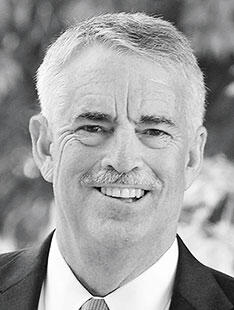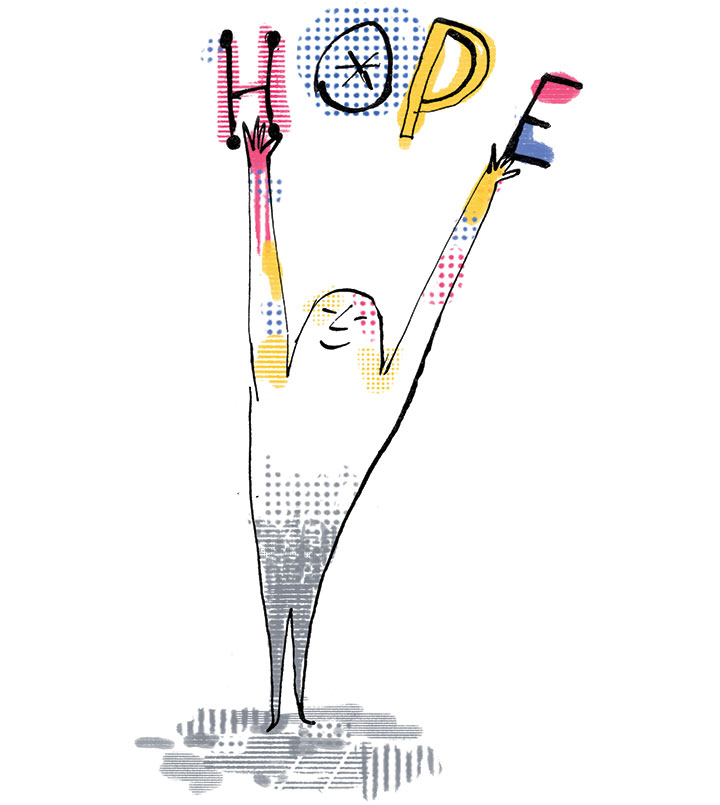Essay: How I Survived Depression

I grew up in Berkeley, Calif., in a family haunted by depression and alcoholism. My father (Princeton ’54) was an English professor, and 12 years ago, after fighting depression for decades, Dad took his own life. The threads of his mental-health conditions are woven into my genetic tapestry as well.
In 1990, my hereditary vulnerability was triggered by life and job stress, and my first struggle with major depression began. As its toxins and my increasing alcohol use ate away at me, frustrated friends told me to “buck up!” I desperately wanted to, but I could not stem the dark tide of sadness and despair. The diagnostic factors of major depression closely tracked what I was feeling: I lost interest in tennis and cycling, and small tasks felt laborious.
The curtain of stigma kept me from seeing that I was fighting challenging health conditions, not indolence or a lack of will. I also failed to realize that I was far from alone: One in five adults lives with a mental-health condition, more than with cancer or diabetes.
In 1993, I saw a psychiatrist who prescribed an antidepressant. Within two months, the medication slowly gained traction. As the gray sludge of sadness and apathy washed away, I emerged from a spiral of impending tragedy. I helped raise two wonderful children, built a successful securities-litigation practice, and became an accomplished cyclist. I began to take my mental wellness for granted.
But in late 2012, difficult life events, increased drinking, and the fading effectiveness of my antidepressant dragged me back into despair. If I had been strong enough to get off the couch, I think I would have taken my own life. In early 2013, I took a medical leave and entered a psychiatric ward. Because I was on the verge of catatonia, the staff psychiatrist immediately started electroconvulsive therapy (ECT). Three times a week I went under general anesthetic and 250 volts were fired through my skull, inducing a seizure. Medical science cannot yet fully explain ECT’s precise mechanism, but it is a treatment method that has proven results for a significant number of patients who manifest certain mental-health conditions, including severe depression.
In the weeks before ECT began to lift my dark mood, I stared listlessly out of the ward’s narrow windows at the Berkeley hills, where I had grown up. It was like watching a black-and-white film about a childhood I could barely recall, due in part to ECT’s corrosive effect on certain memories. Yet, before depression finally overtook him, Dad often said, “Where there’s life, there’s hope.” As 2013 came to a close, the seedlings of that hope began to push up through the moldering leaves of my illness. As new medications, daily exercise, and Alcoholics Anonymous made me stronger, I started up the switchbacks that lead out of the grim valley of mental illness.
Since 2014, I have been standing on the far rim of that abyss, now six years sober and feeling better in many ways than I ever have. In addition to continuing my litigation and mediation practices, I am doing my bit in the service of humanity: sharing my story of recovery and hope and speaking out against the social prejudice that keeps mental-health issues in the shadows.
In two weeks, some of us will return for Reunions, no doubt full of news about our achievements, yet fearful that we could have accomplished more. I urge all of us to be vulnerable and open about the challenges life has thrown at all of us. As writer Joel Drucker says, “We build community when we share our wounds.” Let’s join the fight against the social prejudice that surrounds mental-health conditions. For they are just that: health conditions, not weaknesses or moral failings. Early diagnosis and treatment, combined with exercise and the kindness of others, hold the key to ongoing recovery. Out beyond the shadows, the morning sun lights the green meadow of hope. I will meet you there.












3 Responses
David F. McMahon ’71
7 Years AgoSurviving Depression
I want to thank Cameron Stout ’80 for his forthright and moving description of his surviving depression (Princetonians, May 16). Having recently retired from a 40-plus-year career in psychiatry, I can attest to the positive changes in our public perception and understanding of the ubiquitous nature of mental-health issues, especially depression. Personal stories like his move this critical health conversation forward.
Edward J. Costello
7 Years AgoThanks for a Brave Piece
Thanks to Cameron Stout for his forthright and moving piece on his continuing fight with depression.
It was brave of him, and I know I write for all other depressives when I say: We appreciate it.
Ted Weiss ’67
7 Years AgoA Great Service
For those of us who have dealt with serious mental-health conditions, Cameron Stout has done a great service. The stigma associated with “mental illness” makes the disease worse and keeps people from seeking the help they need. If people will only take the time to educate themselves, they will understand that these illnesses are no different from other medical problems that are treatable and manageable.